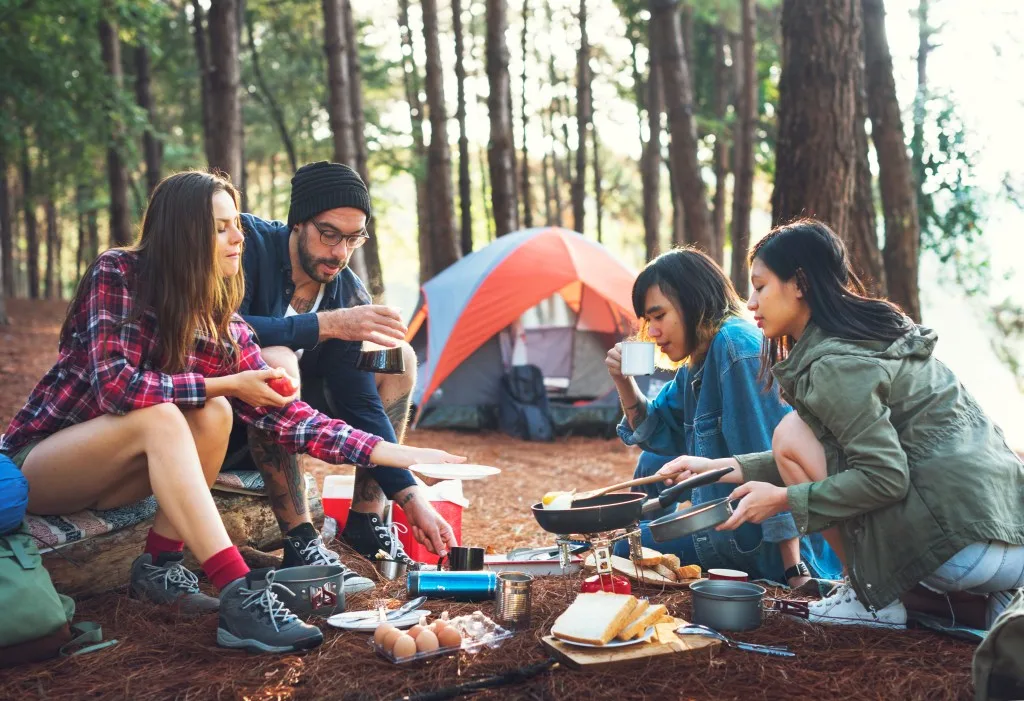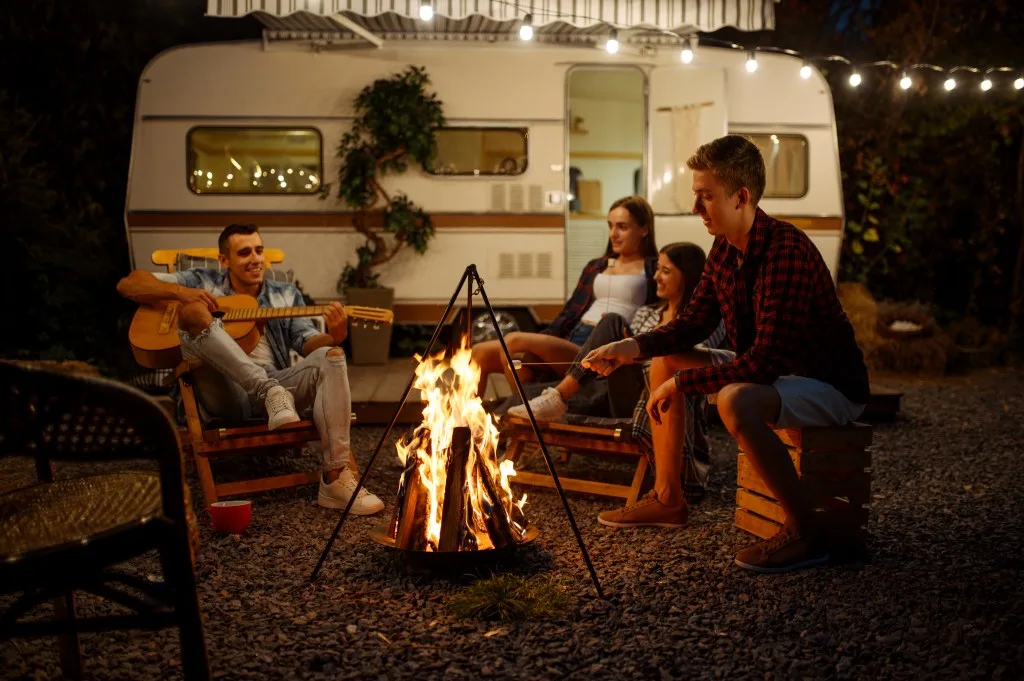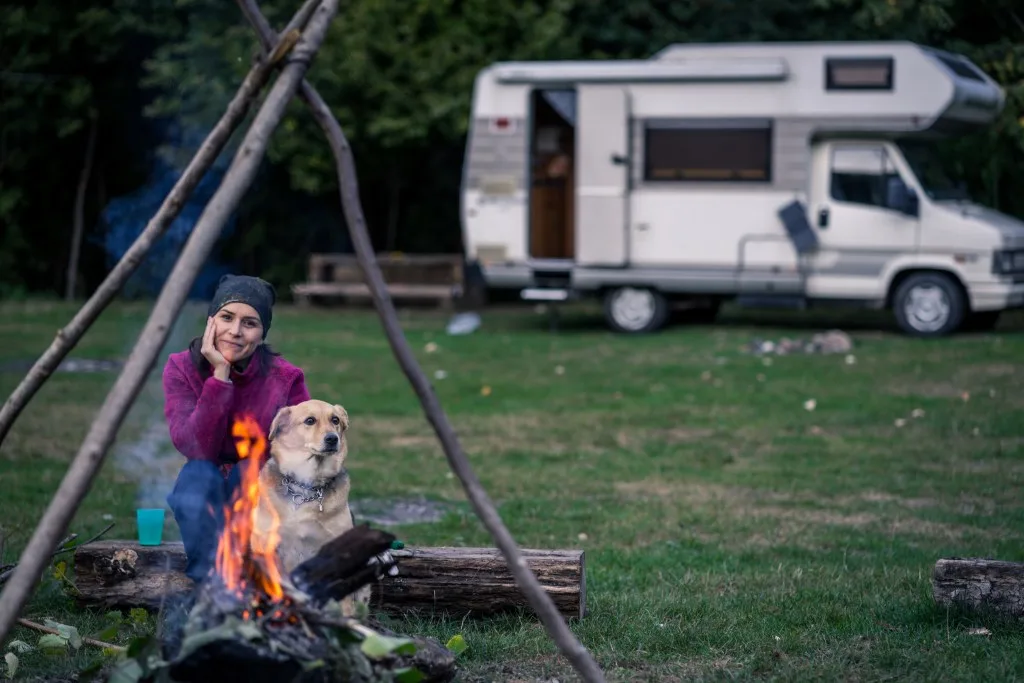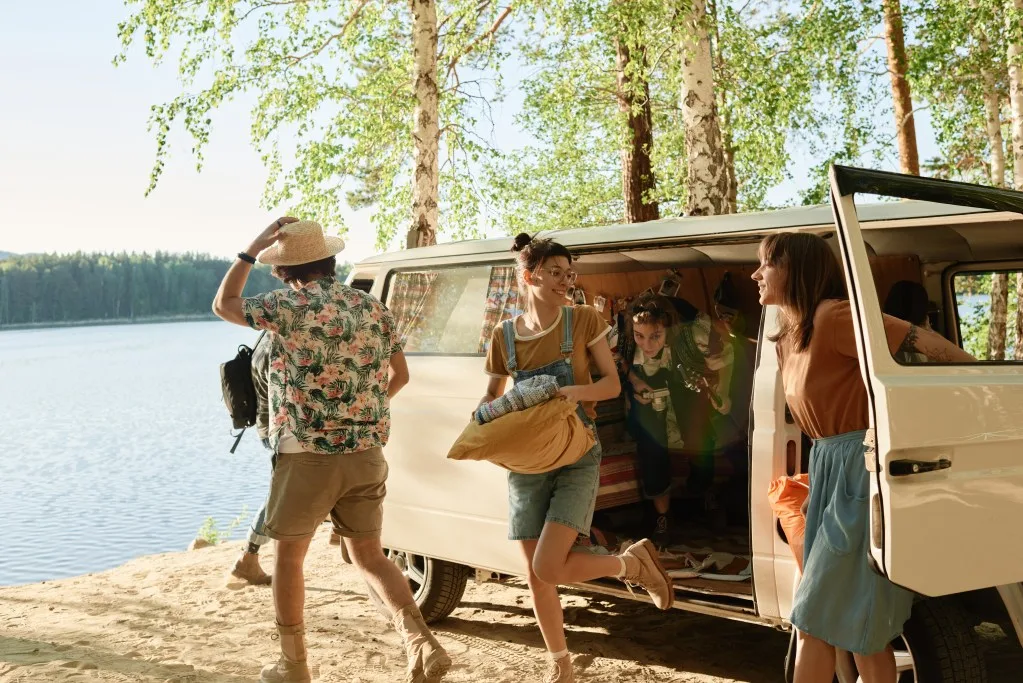Is Primitive Camping in an RV Possible?
Primitive camping is growing more popular in the RV community as many RVers look for alternatives to campgrounds. Why?
Campgrounds are becoming hard to get into with the massive increase in RV sales in recent years, especially during peak seasons and in popular locations.
If you’re having trouble finding a campground with availability, you’re not alone. But, is primitive camping in an RV even possible?
Let’s take a look!
What is Primitive Camping?
While many are flocking to luxurious campgrounds filled with many amenities, there are many adventurous campers seeking the exact opposite. Primitive camping forgoes many of the luxuries often found in campgrounds or resorts. When you choose primitive camping, it will require a bit more self-reliance.
Primitive camping often means camping in a remote location without standard campground amenities like bathrooms or running water. Having a loud or obnoxious neighbor while enjoying primitive camping is unlikely as you’re often as far away from others as possible.
The length of time you’re able to enjoy this style of camping is often dependent on your ability to be self-sufficient. Whether it’s overnight or an extended trip, primitive camping can be a great avenue for disconnecting from the rest of the world.

Is Primitive Camping in an RV Possible
Yes, primitive camping in an RV is most definitely a possibility. While the term “primitive camping” may create images of tent camping in your head, you don’t have to sleep in a tent to camp primitively. A campsite may be primitive for not offering essential amenities found in a campground, but the campsite could fit a massive RV.
Primitive camping means being self-sufficient for many of the essentials in terms of power, water, and a restroom. An RV is an incredible tool to allow you to camp in primitive campsites but still have many of the amenities that campers love, especially a bathroom.

What Is Boondocking?
Boondocking is camping on public lands, typically in an RV in remote locations. When boondocking, an RVer will need a plan for power, water, and using the restroom. Luckily, many RVs roll off the lot capable of boondocking to some extent.
Upgrading your battery bank, water storage, and having a plan for dumping your tanks can increase how long you’re able to boondock. Many RVers utilize solar panels or generators to keep their battery bank charged or to use demanding appliances like air conditioners or microwaves.
Pro Tip: Don’t get stuck in an less than ideal situation while boondocking. Have your best boondocking experience by using these: 5 Simple Boondocking Hacks for Summer Camping.
Is Boondocking Primitive Camping?
Boondocking is a type of primitive camping. Boondocking typically means RVing in remote areas with no amenities. Whether you’re in a tent or an RV, you’ll need a plan for how you’ll provide for your need for water, electricity, and using the bathroom. Using an RV while primitive camping allows for more storage and more luxuries than tent camping, but you’re sure to have a great time either way.

What You Need To Know About Boondocking
Before you hitch up your RV for a weekend of boondocking, there are a handful of things you should know. Let’s take a look!
No Electricity
If you’re boondocking, this means there will be no power pedestal to connect your RV to while camping. A lack of a power pedestal means you’ll either need to keep your boondocking trips very short or have a plan for generating power. Generating power while RVing is often through a generator or solar panels, with a generator typically requiring the least amount of investment.
You’ll likely need to be conscious of your power usage during your trip. Leaving lights or other electronics on when not in use is wasteful and will excessively drain your battery bank and require you to generate more power. So do yourself a favor and manage your power while boondocking.
No Trash Service
When you’re boondocking in remote locations, there likely will not be trash services. You’ll need to take with you anything that you bring. It’s not acceptable and is often illegal to leave anything behind at the end of your stay.
One of the leading causes for public lands shutting down access for camping is because some campers choose to litter and leave trash behind. Leaving trash behind is harmful to the environment and poses a potential risk for attracting unwanted animals. Left behind trash bags can create a very dangerous situation, especially if you’re camping in areas known for having bears or other dangerous animals.

No Water or Sewer
When camping in an established campground with water or sewer hookups, you don’t have to think much about how much water you’re using. If you’re boondocking, you have to be aware of your water usage. One of the most challenging skills to learn when boondocking is managing your water usage.
You’ll need to come with any water you plan on using or have a plan for getting water should you need more. It’s also important to note that any water you use will go to either your gray or black tanks, which are not limitless. You’ll need a plan for dumping your tanks, which might mean packing up and towing your RV to a nearby dump station.
No Amenities
If you’re boondocking in your RV, the location is often the reward. You’re not going to get any amenities in terms of water or restrooms, but if you find the right spot, you may have an incredible view or access to hiking and water activities. With a little bit of effort and research, boondocking can be an incredible way to camp.
How Much Does Boondocking Cost?
There are thousands of boondocking locations across the country that are completely free to use. Many of these locations have restrictions for how long you can stay, but there is no cost to use them.
You may come across some public-use lands that do require a permit to boondock. This permit is often a way for agencies to keep an eye on who is using the land to avoid abuse of the land.
While the campsites may be free or have a minimal cost, there will be some expenses when preparing to boondock. You’ll need to ensure you have the proper supplies necessary to make for a successful boondocking experience.
Keep in Mind: Preparation for boondocking is crucial. Follow these safety procedures to stay safe while boondocking: Is Boondocking a Safe Camping Option?

Is Boondocking Truly Private?
If you’re looking for privacy, boondocking is a great option, but it’s not always guaranteed. Because the lands are public-use, there may be nothing stopping a stranger from setting up camp right next to your campsite.
Some public-use boondocking sites restrict camping to designated camping locations. If you’re able to snag a site with privacy at one of these locations, you’ll have assurance that you’ll have more privacy. You may still experience other campers passing by while scouting out potential camping locations, but you’ll likely have a tremendous amount more privacy than in a campground.
How to Find Primitive and Private Boondocking Sites
There are many great resources for finding primitive and private boondocking sites. Resources like Campendium and iOverlander are two great resources for finding boondocking sites. One advantage of these resources is that they’re websites and have apps for your phone. You can open the app and look at a map, and scout out locations near you. These resources also offer user-submitted reviews that can be incredibly helpful when scouting out potential campsites.
Another great resource to consider is word of mouth. There are many Facebook groups dedicated to boondocking and sharing information. Joining several groups and then using the search feature in these groups can help you discover and learn about primitive and private boondocking sites.
However you find your site, make sure you do your due diligence in researching. Because many of these resources rely on user-submitted data, one camper’s experience can vary quite differently from the next. Once you’ve narrowed down your possible boondocking sites, check the reviews and information on multiple resources to get the most accurate idea of what to expect.
Explore Primitive Camping in an RV
Primitive camping in an RV can be an incredible way to experience the great outdoors. You’re able to provide for yourself many of the luxuries and amenities many campers enjoy while in organized campgrounds. If you come informed and prepared, you can have a pretty epic camping trip in these locations. Do you camp in primitive camping locations while RVing?
Discover the Best Free Camping Across the USA
To be honest with you, we hate paying for camping. There are so many free campsites in America (with complete privacy).
You should give it a try!
As a matter of fact, these free campsites are yours. Every time you pay federal taxes, you’re contributing to these lands.
Become a FREE CAMPING INSIDER and join the 100,000 campers who love to score the best site!
We’ll send you the 50 Best Free Campsites in the USA (one per state). Access the list by submitting your email below:
And for not filling your grey tank, consider showering outside. Use biodegrading soap of course.